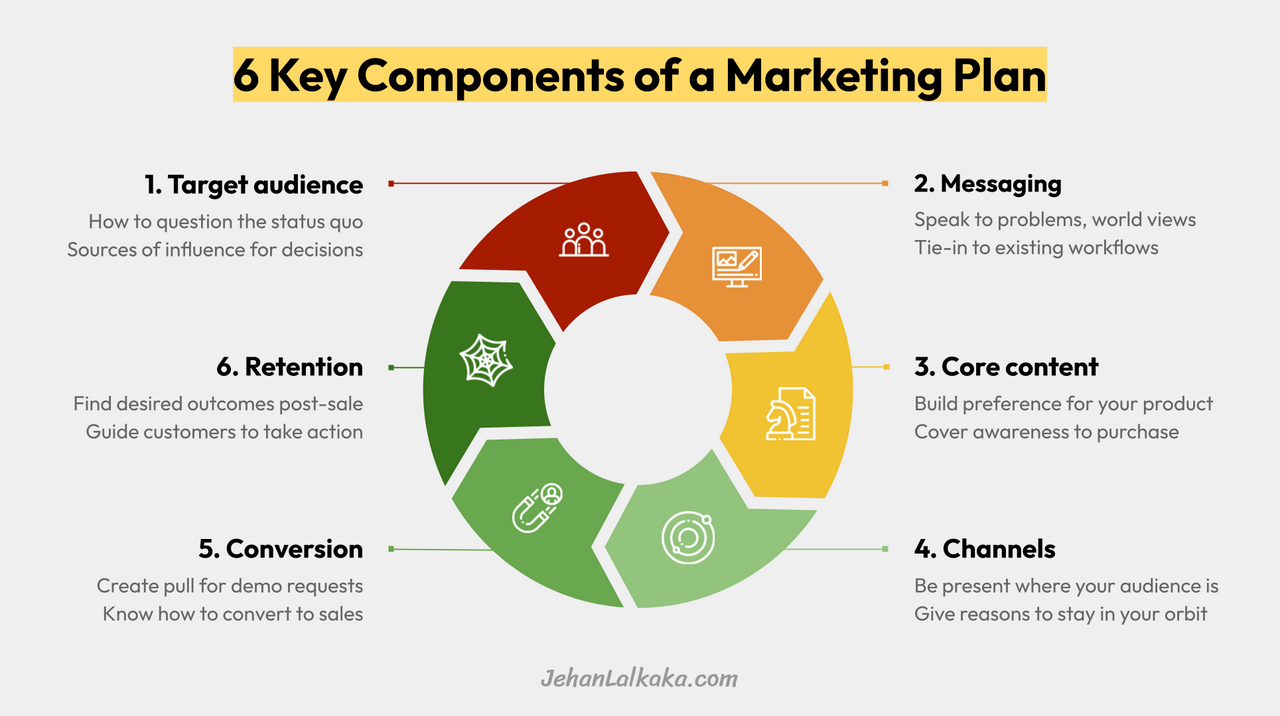Marketing is a waste of money
“Marketing is a waste of money,” said the CEO to Carl (not his real name), who runs marketing for a Series B startup. “Our content is failing. Our ad spending is getting less efficient. And we don’t stand out from our competitors!”
Carl built a marketing engine that went fast for 2 quarters but didn’t last. He invested in SEO content, ebook ad campaigns, and events – all tried and true tactics. But as he looked back, he realized those activities failed at…
A. Positioning against competitors B. Driving engagement (views, likes, bookmarks, comments) C. Driving virality (social/community shares, email shares, internal shares) D. Acquiring customers at scale (no chance if A-C are weak)
So, how can you avoid the same low-growth hell as a marketing leader? Carl learned from his mistakes and had an opportunity to start over. This time he built a methodical marketing plan by asking himself these 6 key questions:

1. Target Audience: Do you understand the people you’re selling to?
Have you embedded yourself in the life of your target audience and understood how to make them question their status quo? Do you know who and what influences their decisions? What are their internal measures of success and perceived barriers to buying a solution like yours?
2. Messaging: Have you translated what you learned into a core pitch?
Are you clear on how to convert a cold audience? Do you know what they need to see and hear before they change their minds and lean into your product? How will you position your product as a simple tie-in into their existing workflows?
3. Core Content: What core content do you need across the funnel?
Do you know which topics and angles will build preference for your product? What assets are required in the evaluation stage when more stakeholders and competitors get involved? You’ll need content that generates signals from “I’m looking for a solution to a problem” to “I’m in the market to buy a solution.”
4. Channels: How will you reach and nurture a cold audience?
Do you know where your audience goes online or offline to solve problems related to your product? How will you establish a presence (using the content from above) on those channels and give your audience a reason to stay in your orbit?
5. Conversion: How will you convert a warm audience into leads and sales?
How will you create pull so potential buyers in your orbit volunteer their time to learn more about your product? (e.g., requesting a demo). What content and messaging will you need to convert that demo request into a sale?
6. Retention: How will you help customers achieve their desired outcomes post-sale?
Do you understand your customers’ desired outcomes after they buy your product? Have you educated customers to choose a path and take action so they can achieve those outcomes?